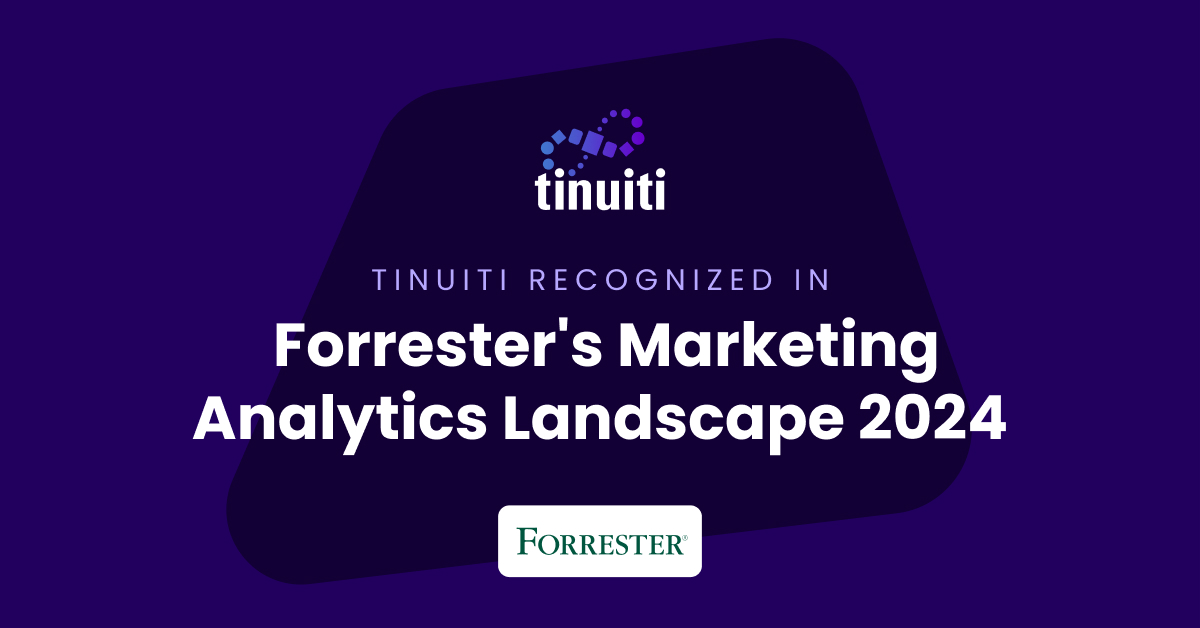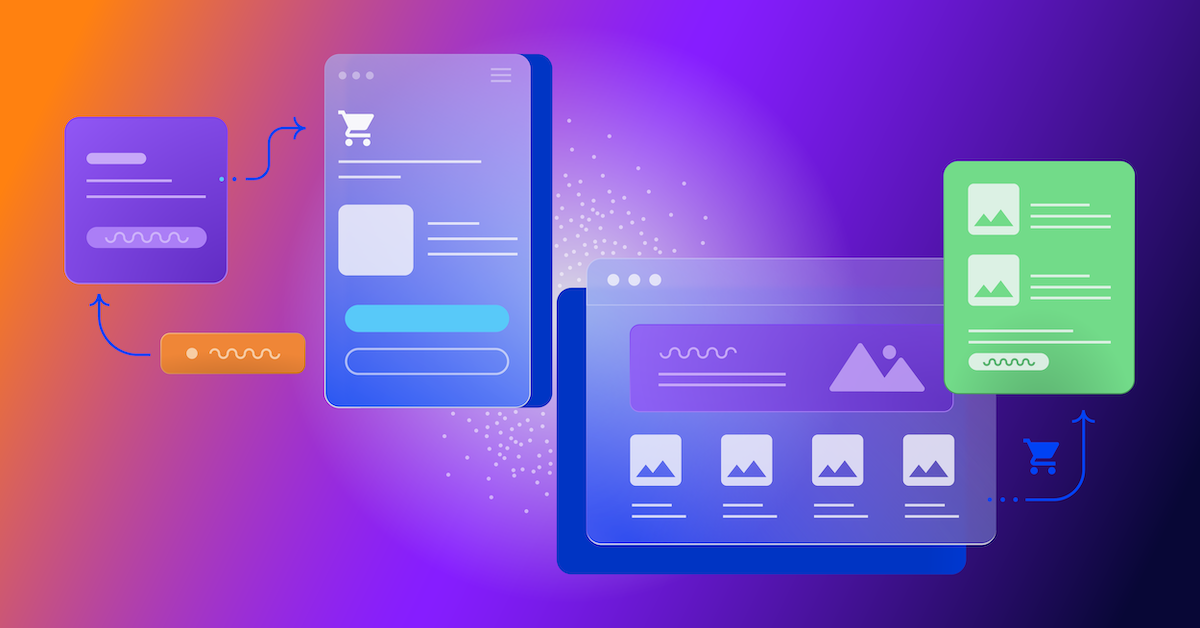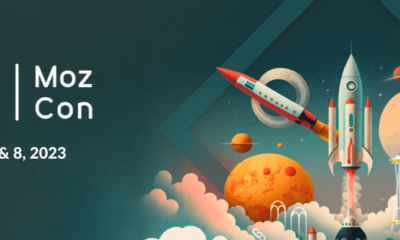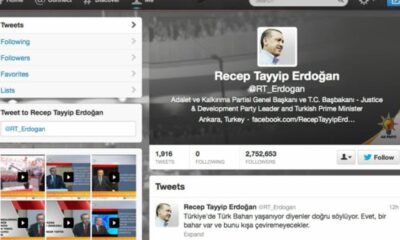MARKETING
Sneak Peek: The MozCon 2023 Speaker Line-Up

The year may slowly be wrapping up but we’ve got an extra special, early gift to share before you log off that laptop and put away your favorite travel mug.
We’re thrilled to announce the first 19 extraordinary speakers that will be taking the MozCon 2023 stage in Seattle this coming August (in alphabetical order).
Snag your Super Early Bird tickets!
Meet the speakers
Amanda Jordan (she/her)
Director of Digital Strategy, RicketyRoo
@amandatjordan | @ricketyroo
Amanda is passionate about helping complex, large businesses improve their local visibility. Her background includes working with clients in the legal, health, financial, and home services industries.
Andi Jarvis (he/him)

Strategy Director, Eximo Marketing
@andijarvis | @EximoMarketing
Andi is the Founder and Strategy Director of Eximo Marketing, a marketing strategy consultancy based in the UK. Eximo works with established manufacturers who want to grow their business via direct to consumer. Andi also hosts the Strategy Sessions podcast.
Brie E. Anderson (she/her)

Owner, BEAST Analytics
@brie_e_anderson
Brie E Anderson is an Analytical Nerd with a Soft Spot for Strategy. She’s spent the last 10 years helping businesses of all sizes execute data-driven strategies to increase ROI. Today, she runs BEAST Analytics, a digital marketing analytics consultancy.
Carrie Rose (she/her)

CEO & Founder, Rise At Seven
@CarrieRosePR | @RiseAtSeven
Carrie Rose, Founder of leading Global Search-First Creative Agency Rise at Seven both driving and facilitating search demand for global brands operating in 4 locations across the world including UK, US and EU
Chris Long (he/him)

VP of Marketing, Go Fish Digital
Chris Long is the VP of Marketing for the Go Fish Digital team. He works with unique problems and advanced search situations to help clients improve organic traffic through a deep understanding of Google’s algorithm and web technology.
Crystal Carter (she/her)

Head of SEO Communications, Wix
@CrystalontheWeb | @wix
Head of SEO Communications, Wix, Crystal is an SEO & digital marketer with over 15 years of experience. Her clients have included Disney, McDonalds, and Tomy. An avid SEO communicator, her work has been featured at Google Search Central, Brighton SEO and more.
Daniel Waisberg (he/him)

Search Advocate, Google
@DanielWaisberg | @google
Daniel is a Search Advocate at Google, part of the Search Console engineering team. His job is divided between educating / inspiring the Search community and working with the product’s engineering team to develop new capabilities.
Duane Brown (he/him)

Founder & Head of Strategy, Take Some Risk Inc.
@DuaneBrown
Duane has lived in 6 cities across 3 continents while working with Ecom, DTC and SaaS brands. He now lives in Canada helping brands grow through data, strategy and PPC marketing across search & social ad platforms.
Jackie Chu (she/her)

SEO Lead, Intelligence, Uber
@jackiecchu | @uber
Jackie Chu is currently the SEO Lead, Intelligence for Uber, driving analytics and tooling for the SEO teams globally. She has deep experience in technical SEO, content SEO, ASO and international SEO spanning both B2B and B2C industries.
Jes Scholz (she/her)

Group CMO, Ringier
jes_scholz | @ringier_ag
Group CMO at Swiss media giant Ringier, marketing technologist & mum of two tiny humans. Jes loves to talk about the future of search, smart marketing automation and travel.
Lidia Infante (she/her)

Senior SEO Manager, Sanity
@LidiaInfanteM | @sanity_io
Lidia has been working in SEO for almost a decade, helping businesses in SaaS, media and e-commerce grow online. She has a BSC in Psychology and a Master in Digital Business and is a regular speaker at SEO events such as MozCon, BrightonSEO or WTSFest.
Lily Ray (she/her)

Senior Director, SEO & Head of Organic Research, Amsive Digital
@lilyraynyc | @amsive_digital
Lily Ray is the Sr. Director, SEO & Head of Organic Research at Amsive Digital, where she provides strategic leadership for the agency’s SEO client programs. Lily began her SEO career in 2010 in a fast-paced start-up environment and moved quickly into the agency world, where she helped grow and establish an award-winning SEO department that delivered high impact work for a fast-growing list of notable clients, including Fortune 500 companies.
Miracle Inameti-Archibong (she/her)

Head of Organic Search, John Lewis (Financial Services)
@Mira_Inam
Miracle is Head of Organic Search at John Lewis (Financial Services) and is armed with more than a decade of supporting national, and global brands with technical SEO and data strategy.
Noah Learner (he/him/his)

Product Director, Two Octobers
@NoahLearner | @twooctobers
Noah is a technical marketer, nicknamed the Kraken, who is happiest building SEO tools, automations, data pipelines and communities. When not in the lab, he loves skiing, fly fishing, camping with his family, and walking his dog, Shadow.
Dr. Pete Meyers (he/him)

Marketing Scientist, Moz
@Dr_Pete | @Moz
Dr. Pete is Marketing Scientist for Seattle-based Moz, where he works with the marketing and data science teams on product research and data-driven content.
Ross Simmonds (he/him)

CEO & Founder, Foundation Marketing
@TheCoolestCool | @FoundationIncCo
Ross Simmonds is the founder & CEO of Foundation, a global marketing agency that provides services to organizations all over the world ranging from some of the fastest-growing startups to global brands. He was named one of Atlantic Canada’s Top 50 CEO.
Tom Anthony (he/him)

CTO, SearchPilot
@TomAnthonySEO | @SearchPilot
Tom is CTO at SearchPilot, where he leads the engineering & product teams. Tom has been working on the web for over 25 years, and has a PhD in Computer Science. He lives with his wife and 3 daughters in Germany.
Tom Capper (he/him)

Senior Search Scientist, Moz
@thcapper | @Moz
Tom heads up the Search Science team at Moz, providing research and insight for Moz’s next generation of tools. Previously he headed up the London consulting team for SEO agency Distilled, and worked as a chef in a roadside grill.
Wil Reynolds (he/him)

CEO & Vice President of Innovation, Seer Interactive
@wilreynolds | @SeerInteractive
Wil has been leading the charge to leverage “Big Data” to break down silos between SEO, PPC, and traditional marketing — pulling together data from various sources to see the big picture.
Meet the emcees
Cheryl Draper (she/her)

Event Marketing Manager, Moz
@CherylDraper | @Moz
Melissa Rae Brown (she/her)

Learning Team Manager, Moz
@Melissa_R_B_ | @Moz
Ola King (he/him)

User Researcher, Moz
@justolaking | @Moz
From fan favorites to fresh faces, it’s a pretty great start to what’s sure to be the best MozCon yet! We’ll have even more incredible speakers to reveal, including our community speaker lineup, in early 2023.
But don’t wait to snag your tickets! Save up to $600 on MozCon 2023 now with Super Early Bird pricing.
MARKETING
Tinuiti Marketing Analytics Recognized by Forrester

Rapid Media Mix Modeling and Proprietary Tech Transform Brand Performance
Tinuiti, the largest independent full-funnel performance marketing agency, has been included in a recent Forrester Research report titled, “The Marketing Analytics Landscape, Q2 2024.” This report comprehensively overviews marketing analytics markets, use cases, and capabilities. B2C marketing leaders can use this research by Principal Analyst Tina Moffett to understand the intersection of marketing analytics capabilities and use cases to determine the vendor or service provider best positioned for their analytics and insights needs. Moffett describes the top marketing analytics markets as advertising agencies, marketing dashboards and business intelligence tools, marketing measurement and optimization platforms and service providers, and media analytics tools.
As an advertising agency, we believe Tinuiti is uniquely positioned to manage advertising campaigns for brands including buying, targeting, and measurement. Our proprietary measurement technology, Bliss Point by Tinuiti, allows us to measure the optimal level of investment to maximize impact and efficiency. According to the Forrester report, “only 30% of B2C marketing decision-makers say their organization uses marketing or media mix modeling (MMM),” so having a partner that knows, embraces, and utilizes MMM is important. As Tina astutely explains, data-driven agencies have amplified their marketing analytics competencies with data science expertise; and proprietary tools; and tailored their marketing analytics techniques based on industry, business, and data challenges.
Our Rapid Media Mix Modeling sets a new standard in the market with its exceptional speed, precision, and transparency. Our patented tech includes Rapid Media Mix Modeling, Always-on Incrementality, Brand Equity, Creative Insights, and Forecasting – it will get you to your Marketing Bliss Point in each channel, across your entire media mix, and your overall brand performance.
As a marketing leader you may ask yourself:
- How much of our marketing budget should we allocate to driving store traffic versus e-commerce traffic?
- How should we allocate our budget by channel to generate the most traffic and revenue possible?
- How many customers did we acquire in a specific region with our media spend?
- What is the impact of seasonality on our media mix?
- How should we adjust our budget accordingly?
- What is the optimal marketing channel mix to maximize brand awareness?
These are just a few of the questions that Bliss Point by Tinuiti can help you answer.
Learn more about our customer-obsessed, product-enabled, and fully integrated approach and how we’ve helped fuel full-funnel outcomes for the world’s most digital-forward brands like Poppi & Toms.
The Landscape report is available online to Forrester customers or for purchase here.
MARKETING
Ecommerce evolution: Blurring the lines between B2B and B2C

Understanding convergence
B2B and B2C ecommerce are two distinct models of online selling. B2B ecommerce is between businesses, such as wholesalers, distributors, and manufacturers. B2C ecommerce refers to transactions between businesses like retailers and consumer brands, directly to individual shoppers.
However, in recent years, the boundaries between these two models have started to fade. This is known as the convergence between B2B and B2C ecommerce and how they are becoming more similar and integrated.
Source: White Paper: The evolution of the B2B Consumer Buyer (ClientPoint, Jan 2024)
What’s driving this change?
Ever increasing customer expectations
Customers today expect the same level of convenience, speed, and personalization in their B2B transactions as they do in their B2C interactions. B2B buyers are increasingly influenced by their B2C experiences. They want research, compare, and purchase products online, seamlessly transitioning between devices and channels. They also prefer to research and purchase online, using multiple devices and channels.
Forrester, 68% of buyers prefer to research on their own, online . Customers today expect the same level of convenience, speed, and personalization in their B2B transactions as they do in their B2C interactions. B2B buyers are increasingly influenced by their B2C experiences. They want research, compare, and purchase products online, seamlessly transitioning between devices and channels. They also prefer to research and purchase online, using multiple devices and channels
Technology and omnichannel strategies
Technology enables B2B and B2C ecommerce platforms to offer more features and functionalities, such as mobile optimization, chatbots, AI, and augmented reality. Omnichannel strategies allow B2B and B2C ecommerce businesses to provide a seamless and consistent customer experience across different touchpoints, such as websites, social media, email, and physical stores.
However, with every great leap forward comes its own set of challenges. The convergence of B2B and B2C markets means increased competition. Businesses now not only have to compete with their traditional rivals, but also with new entrants and disruptors from different sectors. For example, Amazon Business, a B2B ecommerce platform, has become a major threat to many B2B ecommerce businesses, as it offers a wide range of products, low prices, and fast delivery
“Amazon Business has proven that B2B ecommerce can leverage popular B2C-like functionality” argues Joe Albrecht, CEO / Managing Partner, Xngage. . With features like Subscribe-and-Save (auto-replenishment), one-click buying, and curated assortments by job role or work location, they make it easy for B2B buyers to go to their website and never leave. Plus, with exceptional customer service and promotional incentives like Amazon Business Prime Days, they have created a reinforcing loyalty loop.
And yet, according to Barron’s, Amazon Business is only expected to capture 1.5% of the $5.7 Trillion addressable business market by 2025. If other B2B companies can truly become digital-first organizations, they can compete and win in this fragmented space, too.”
If other B2B companies can truly become digital-first organizations, they can also compete and win in this fragmented space
Joe AlbrechtCEO/Managing Partner, XNGAGE
Increasing complexity
Another challenge is the increased complexity and cost of managing a converging ecommerce business. Businesses have to deal with different customer segments, requirements, and expectations, which may require different strategies, processes, and systems. For instance, B2B ecommerce businesses may have to handle more complex transactions, such as bulk orders, contract negotiations, and invoicing, while B2C ecommerce businesses may have to handle more customer service, returns, and loyalty programs. Moreover, B2B and B2C ecommerce businesses must invest in technology and infrastructure to support their convergence efforts, which may increase their operational and maintenance costs.
How to win
Here are a few ways companies can get ahead of the game:
Adopt B2C-like features in B2B platforms
User-friendly design, easy navigation, product reviews, personalization, recommendations, and ratings can help B2B ecommerce businesses to attract and retain more customers, as well as to increase their conversion and retention rates.
According to McKinsey, ecommerce businesses that offer B2C-like features like personalization can increase their revenues by 15% and reduce their costs by 20%. You can do this through personalization of your website with tools like Product Recommendations that help suggest related products to increase sales.
Focus on personalization and customer experience
B2B and B2C ecommerce businesses need to understand their customers’ needs, preferences, and behaviors, and tailor their offerings and interactions accordingly. Personalization and customer experience can help B2B and B2C ecommerce businesses to increase customer satisfaction, loyalty, and advocacy, as well as to improve their brand reputation and competitive advantage. According to a Salesforce report, 88% of customers say that the experience a company provides is as important as its products or services.
Market based on customer insights
Data and analytics can help B2B and B2C ecommerce businesses to gain insights into their customers, markets, competitors, and performance, and to optimize their strategies and operations accordingly. Data and analytics can also help B2B and B2C ecommerce businesses to identify new opportunities, trends, and innovations, and to anticipate and respond to customer needs and expectations. According to McKinsey, data-driven organizations are 23 times more likely to acquire customers, six times more likely to retain customers, and 19 times more likely to be profitable.
What’s next?
The convergence of B2B and B2C ecommerce is not a temporary phenomenon, but a long-term trend that will continue to shape the future of ecommerce. According to Statista, the global B2B ecommerce market is expected to reach $20.9 trillion by 2027, surpassing the B2C ecommerce market, which is expected to reach $10.5 trillion by 2027. Moreover, the report predicts that the convergence of B2B and B2C ecommerce will create new business models, such as B2B2C, B2A (business to anyone), and C2B (consumer to business).
Therefore, B2B and B2C ecommerce businesses need to prepare for the converging ecommerce landscape and take advantage of the opportunities and challenges it presents. Here are some recommendations for B2B and B2C ecommerce businesses to navigate the converging landscape:
- Conduct a thorough analysis of your customers, competitors, and market, and identify the gaps and opportunities for convergence.
- Develop a clear vision and strategy for convergence, and align your goals, objectives, and metrics with it.
- Invest in technology and infrastructure that can support your convergence efforts, such as cloud, mobile, AI, and omnichannel platforms.
- Implement B2C-like features in your B2B platforms, and vice versa, to enhance your customer experience and satisfaction.
- Personalize your offerings and interactions with your customers, and provide them with relevant and valuable content and solutions.
- Leverage data and analytics to optimize your performance and decision making, and to innovate and differentiate your business.
- Collaborate and partner with other B2B and B2C ecommerce businesses, as well as with other stakeholders, such as suppliers, distributors, and customers, to create value and synergy.
- Monitor and evaluate your convergence efforts, and adapt and improve them as needed.
By following these recommendations, B2B and B2C ecommerce businesses can bridge the gap between their models and create a more integrated and seamless ecommerce experience for their customers and themselves.
MARKETING
Streamlining Processes for Increased Efficiency and Results

How can businesses succeed nowadays when technology rules? With competition getting tougher and customers changing their preferences often, it’s a challenge. But using marketing automation can help make things easier and get better results. And in the future, it’s going to be even more important for all kinds of businesses.
So, let’s discuss how businesses can leverage marketing automation to stay ahead and thrive.
Benefits of automation marketing automation to boost your efforts
First, let’s explore the benefits of marketing automation to supercharge your efforts:
Marketing automation simplifies repetitive tasks, saving time and effort.
With automated workflows, processes become more efficient, leading to better productivity. For instance, automation not only streamlines tasks like email campaigns but also optimizes website speed, ensuring a seamless user experience. A faster website not only enhances customer satisfaction but also positively impacts search engine rankings, driving more organic traffic and ultimately boosting conversions.
Automation allows for precise targeting, reaching the right audience with personalized messages.
With automated workflows, processes become more efficient, leading to better productivity. A great example of automated workflow is Pipedrive & WhatsApp Integration in which an automated welcome message pops up on their WhatsApp
within seconds once a potential customer expresses interest in your business.
Increases ROI
By optimizing campaigns and reducing manual labor, automation can significantly improve return on investment.
Leveraging automation enables businesses to scale their marketing efforts effectively, driving growth and success. Additionally, incorporating lead scoring into automated marketing processes can streamline the identification of high-potential prospects, further optimizing resource allocation and maximizing conversion rates.
Harnessing the power of marketing automation can revolutionize your marketing strategy, leading to increased efficiency, higher returns, and sustainable growth in today’s competitive market. So, why wait? Start automating your marketing efforts today and propel your business to new heights, moreover if you have just learned ways on how to create an online business
How marketing automation can simplify operations and increase efficiency
Understanding the Change
Marketing automation has evolved significantly over time, from basic email marketing campaigns to sophisticated platforms that can manage entire marketing strategies. This progress has been fueled by advances in technology, particularly artificial intelligence (AI) and machine learning, making automation smarter and more adaptable.
One of the main reasons for this shift is the vast amount of data available to marketers today. From understanding customer demographics to analyzing behavior, the sheer volume of data is staggering. Marketing automation platforms use this data to create highly personalized and targeted campaigns, allowing businesses to connect with their audience on a deeper level.
The Emergence of AI-Powered Automation
In the future, AI-powered automation will play an even bigger role in marketing strategies. AI algorithms can analyze huge amounts of data in real-time, helping marketers identify trends, predict consumer behavior, and optimize campaigns as they go. This agility and responsiveness are crucial in today’s fast-moving digital world, where opportunities come and go in the blink of an eye. For example, we’re witnessing the rise of AI-based tools from AI website builders, to AI logo generators and even more, showing that we’re competing with time and efficiency.
Combining AI-powered automation with WordPress management services streamlines marketing efforts, enabling quick adaptation to changing trends and efficient management of online presence.
Moreover, AI can take care of routine tasks like content creation, scheduling, and testing, giving marketers more time to focus on strategic activities. By automating these repetitive tasks, businesses can work more efficiently, leading to better outcomes. AI can create social media ads tailored to specific demographics and preferences, ensuring that the content resonates with the target audience. With the help of an AI ad maker tool, businesses can efficiently produce high-quality advertisements that drive engagement and conversions across various social media platforms.
Personalization on a Large Scale
Personalization has always been important in marketing, and automation is making it possible on a larger scale. By using AI and machine learning, marketers can create tailored experiences for each customer based on their preferences, behaviors, and past interactions with the brand.
This level of personalization not only boosts customer satisfaction but also increases engagement and loyalty. When consumers feel understood and valued, they are more likely to become loyal customers and brand advocates. As automation technology continues to evolve, we can expect personalization to become even more advanced, enabling businesses to forge deeper connections with their audience. As your company has tiny homes for sale California, personalized experiences will ensure each customer finds their perfect fit, fostering lasting connections.
Integration Across Channels
Another trend shaping the future of marketing automation is the integration of multiple channels into a cohesive strategy. Today’s consumers interact with brands across various touchpoints, from social media and email to websites and mobile apps. Marketing automation platforms that can seamlessly integrate these channels and deliver consistent messaging will have a competitive edge. When creating a comparison website it’s important to ensure that the platform effectively aggregates data from diverse sources and presents it in a user-friendly manner, empowering consumers to make informed decisions.
Omni-channel integration not only betters the customer experience but also provides marketers with a comprehensive view of the customer journey. By tracking interactions across channels, businesses can gain valuable insights into how consumers engage with their brand, allowing them to refine their marketing strategies for maximum impact. Lastly, integrating SEO services into omni-channel strategies boosts visibility and helps businesses better understand and engage with their customers across different platforms.
The Human Element
While automation offers many benefits, it’s crucial not to overlook the human aspect of marketing. Despite advances in AI and machine learning, there are still elements of marketing that require human creativity, empathy, and strategic thinking.
Successful marketing automation strikes a balance between technology and human expertise. By using automation to handle routine tasks and data analysis, marketers can focus on what they do best – storytelling, building relationships, and driving innovation.
Conclusion
The future of marketing automation looks promising, offering improved efficiency and results for businesses of all sizes.
As AI continues to advance and consumer expectations change, automation will play an increasingly vital role in keeping businesses competitive.
By embracing automation technologies, marketers can simplify processes, deliver more personalized experiences, and ultimately, achieve their business goals more effectively than ever before.
-

 SEO7 days ago
SEO7 days agoGoogle Limits News Links In California Over Proposed ‘Link Tax’ Law
-

 SEARCHENGINES6 days ago
SEARCHENGINES6 days agoGoogle Core Update Volatility, Helpful Content Update Gone, Dangerous Google Search Results & Google Ads Confusion
-

 SEO6 days ago
SEO6 days ago10 Paid Search & PPC Planning Best Practices
-

 MARKETING7 days ago
MARKETING7 days ago2 Ways to Take Back the Power in Your Business: Part 2
-

 MARKETING5 days ago
MARKETING5 days ago5 Psychological Tactics to Write Better Emails
-

 SEARCHENGINES5 days ago
SEARCHENGINES5 days agoWeekend Google Core Ranking Volatility
-

 PPC7 days ago
PPC7 days agoCritical Display Error in Brand Safety Metrics On Twitter/X Corrected
-

 MARKETING6 days ago
MARKETING6 days agoThe power of program management in martech











![Convince Your Boss to Send You to MozCon 2023 [Plus Bonus Letter Template!] Convince Your Boss to Send You to MozCon 2023 [Plus Bonus Letter Template!]](https://articles.entireweb.com/wp-content/uploads/2023/03/1678159474_Convince-Your-Boss-to-Send-You-to-MozCon-2023-Plus-400x240.png)
![Convince Your Boss to Send You to MozCon 2023 [Plus Bonus Letter Template!] Convince Your Boss to Send You to MozCon 2023 [Plus Bonus Letter Template!]](https://articles.entireweb.com/wp-content/uploads/2023/03/1678159474_Convince-Your-Boss-to-Send-You-to-MozCon-2023-Plus-80x80.png)

You must be logged in to post a comment Login